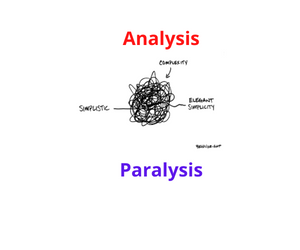Banks need to cut their costs. This is actually always true, however in late Summer 2012 the need is acute as bankers fight with low interest rates, low volumes and low revenues. Banks are though not really efficient at the best of times and in the worst of times, that really hurts.
Banks send their retail customers a lot of mail, some of which they need and some they do not. There is now an effort to get these things on-line. I was delighted to see an add on to the amazingly useful Evernote app that allows you to pull pdf reports from many banks into one place (FileThis Fetch). Sadly, in my home country of Switzerland, the Swiss banks don’t use this, as they worried about data protection. Too worried it seems to do great things for clients, but still vulnerable to paid spies from German Finance Ministers.
In wholesale or investment banking, the costs are huge; keeping a global investment bank running involves gobs of expense daily. Pretty much all banks have a cost saving routine that varies in the intensity of its application; save on market data, save on contractors, reduce discretionary IT spend and so on. Some of the expense really does need a thorough questioning; do we really need to be doing “that”, as well as “is this the most efficient way to do it”. A couple of lessons learned from the world of SWIFT messages highlight some typical pitfalls.
SWIFT is a bank owned cooperative organisation that helps the banks and the other parts of the financial markets infrastructure move messages around the globe. It is for banks a combination of FedEx and Vodafone. Millions of messages a day move on its networks. This is not something you use with retail or private clients; it is a private members club for institutions. Traditionally SWIFT priced on a per message basis; although, they now offer some variations on “all you can eat” pricing, lessons learned in the past are valuable ones.
Some years passed in days at Credit Suisse my responsibilities included a very small SWIFT team, who looked after the management of our SWIFT connections and the relationship with SWIFT. At some point, somebody showed me a detailed bill of what we were paying for, conveniently broken out by type. There at the bottom of the list was a bill for some €200’000 for something called an MT910. That is a type of message used to inform a client of a credit to the account. One credit, one MT910. Telling clients about their account is important and necessary, but this was a special kind of message. The standard “bank statement” in the banking world is an end of day one. The same way that your retail bank sends you a month end statement with opening balance, debits and credits, and closing balance, in the banking world the same thing is done daily. It is also something that is checked by machine. Where you might eyeball your Barclays Bank statement, banks need to this more scientifically. These standard messages are called MT950’s and fed into what in most shops is called a “cash rec”. The MT910 is an intraday message, sent as soon as the credit is received. That can be a very useful bit of information to have if used carefully. Think of it like a school attendance check; if you are expecting 23 pupils and tick them off as they come thru the door, then you have done a same-day check that all the pupils are there. In the same way, those intra-day messages could be useful if you could tick off from a list of expected receipts; 10 expected, 8 down, 2 to go for a total of another $110. That sounds easy, but then as now, almost without exception banks are not capable of making use of that information.
I knew enough to be dangerous and curious. I called in one of the SWIFT team, a wonderful elder gent called Gerd. He had been around since before SWIFT was conceived and grew up with it.
“Gerd. Looking at these bills, I am a little shocked at what these MT910 things are costing. Any thoughts on why we are sending so many? Are we sending them to all our institutional clients?”
“Yes we are and we are doing that because we have to send confirmations to clients”
“Really. I understand the confirmations and clients thing for retail clients, but I don’t believe we have to send intraday messages, at great expense, to institutional clients, especially when I know really well that they are not capable of doing anything with them except perhaps put them in a pile in the corner.”
“Well, we have a legal opinion that tells us we have to do these things” With the most blinding efficiency that only somebody of the older generation could muster he walked over to a filing cabinet, pulled out a faded ring binder, rifled through it and pulled out a memo from over 10 years before. So old was this document, that it was on the letterhead of the old “Schweizerische Kreditanstalt”, the domestic forerunner of today’s Credit Suisse. It was from an in house lawyer and was indeed on the subject of confirms and the need to send them to customers.
“Gerd, this lawyer is quite right, we do need to send confirms to clients. But, what you have here is a domestic lawyer answering a broad, sweeping question about what you send to clients generally. It is no surprise you got the answer you did. If you had asked a more specific question about whether we need to send intra-day confirmations to institutional clients in addition to the end of day statement, then I am sure the answer would be different. I am pretty sure that 99.9% of the recipients do not have the systems to do anything with these things. So, here is what I want you to do. Turn all those MT910’s off right away. We’ll wait for the phone to ring and pretend we have some sort of system problem if somebody does call.”
So off went the confirms and we waited for the phone to ring. Sure enough, we were not deluged with calls, in fact it was about as quiet as in the Carlsberg beer complaints department. There was one call though. Sure enough, with my heritage, it had to be Goldman Sachs. So I talked to them, told them we must have a system issue of one sort or another and I would look into it right away. Out of curiousity, I asked though what they were doing with these things: “I know your systems quite well and unless your GTOS Treasury application has suddenly moved on in leaps and bounds, it can’t take in these messages. May I ask what you are doing with them?” “Oh, we print them and put them in a corner just in case” “Well for just in case, would you be ok if we provided you a web service where you could log in and look up the details?” Good for the guys at Goldman, this was ok by them. That was as much push back as we got and we were able to chalk up €200k per year. Events suggested that this was a case where you should not ask for permission and in the worst case, ask for forgiveness.
Lessons Learned: There are lots of things that banks do that are unnecessary. Don’t take anything for granted; just because you have been doing something for a while does not mean you have to do it. How you ask a question matters, especially when you are in a professional marketplace, where two professional counterparts can agree not to do something. Also consider whether it is worth your paying for a particular service. Should you perhaps offer it as premium service that is paid for.
A personal request: Comments and feedback from regular readers are very welcome. If you find this Blog useful, please subscribe. There is an E-Mail tool and an RSS link on the right hand side of the main Blog page. If you like it enough to share, please share this with a friend or two and ask them to subscribe too. If I am wide of the mark and not offering anything of use, please comment or contact me directly via E-Mail.
Share on:



